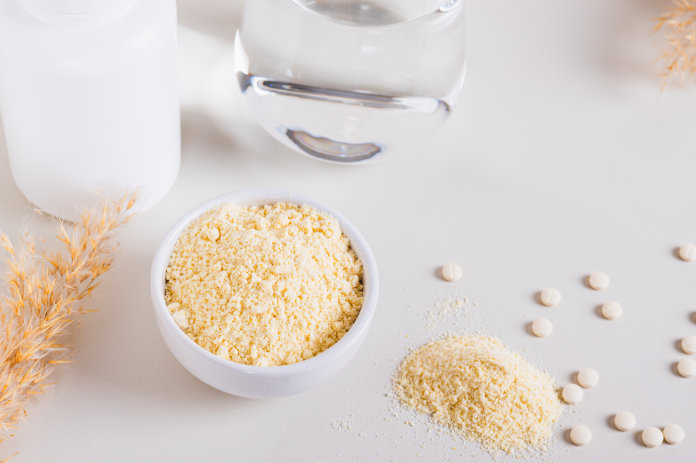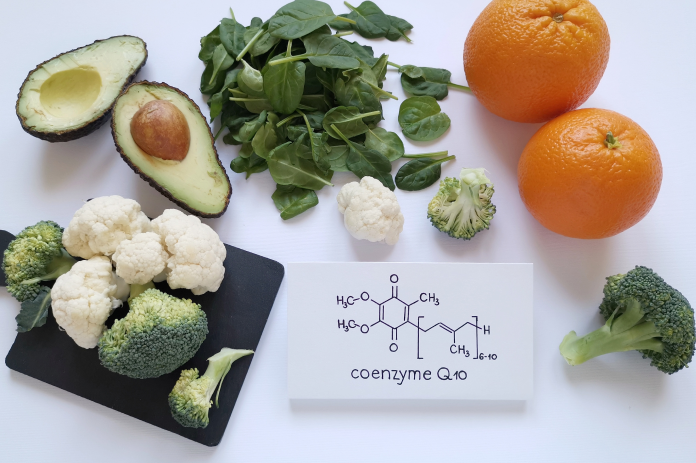
“The future of nutrition isn’t about more ingredients — it’s about smarter ones.”
The nutritional supplement industry is rapidly evolving. Gone are the days when vitamins and minerals were simply used to correct nutritional deficiencies.
Today, consumers are turning toward products that deliver targeted functional outcomes: sharper focus, stress resilience, improved metabolism, and holistic wellness. For brand owners, understanding the role of functional ingredients, including bioactive compounds, adaptogens, cognitive boosters, and metabolic support agents, is critical to staying relevant and scientifically credible in a competitive marketplace.
From Deficiency Correction to Functional Optimization
Traditionally, vitamins and minerals were used to ameliorate deficiencies. Vitamin C prevented scurvy, iron addressed anemia, and calcium ensured bone health. These formulations focused on restoring baseline health rather than optimizing function.
However, in the last decade, the consumer mindset has shifted from “not being sick” to “feeling my best.” This wellness-driven paradigm demands formulations with clinical backing, measurable benefits, and multi-pathway activity. The new generation of consumers is informed, label-literate, and expects transparency about ingredient sourcing, dosage, and clinical validation.
Modern nutritional science recognizes that the body doesn’t function through isolated nutrients. It’s a complex web of biochemical networks, where ingredient synergy determines real efficacy. For brand owners, this means re-thinking formulations not as collections of ingredients but as orchestrated systems of bioactivity.
What Are Functional Ingredients?
Functional ingredients go beyond meeting basic nutritional needs. They interact with biological systems to influence physiological processes, modulating inflammation, neurotransmitter balance, mitochondrial efficiency, and hormonal signalling. These compounds often belong to categories such as:
- Bioactive compounds – molecules that exert measurable biological effects, often derived from plants, fungi, or marine sources.
- Adaptogens – natural substances that enhance the body’s resilience to physical, chemical, and biological stress.
- Cognitive boosters – ingredients that improve focus, memory, and mental clarity through neurochemical modulation.
- Metabolic support agents – compounds that improve energy utilization, glucose control, or fat oxidation.
- Ingredient synergy enhancers – substances that optimize absorption, stability, or cooperative activity among other ingredients.
Understanding these categories allows brand owners to design products that are both innovative and clinically meaningful.
1. Bioactive Compounds: The Next Frontier in Nutraceutical Design and Functional Nutrition
Bioactive compounds include a wide range of plant-derived molecules such as polyphenols, flavonoids, carotenoids, and alkaloids. They act at the cellular level to influence pathways related to inflammation, oxidation, and mitochondrial function.
Example Ingredients:
- Curcumin (from turmeric): Supports inflammatory balance and antioxidant defences.
- Resveratrol (from grapes): Activates sirtuins, mimicking caloric restriction and supporting longevity.
- EGCG (from green tea): Promotes metabolic balance and cellular detoxification.
For brand owners, these ingredients add both scientific credibility and market differentiation, especially when sourced in clinically validated and bioavailable forms such as CurcuWIN®, Longvida®, or BioPerine® complexes.

2. Adaptogens: Balancing Stress and Resilience
Adaptogens are unique because they don’t push the body in one direction: they normalize physiological processes. They are particularly relevant in today’s stress-laden, sleep-deprived culture, where chronic cortisol elevation disrupts immune, metabolic, and cognitive balance.
Top adaptogens include:
- Ashwagandha (Withania somnifera): Enhances stress resistance, supports adrenal health, and improves mood and sleep quality.
- Rhodiola rosea: Improves endurance, mental focus, and fatigue recovery.
- Panax ginseng: Acts as both a metabolic and cognitive modulator, supporting energy and memory.
These adaptogens work by modulating the hypothalamic-pituitary-adrenal (HPA) axis, balancing stress hormones, and improving metabolic support under duress. Clinical studies, such as those on Ashwagandha, have demonstrated significant improvements in stress scores, endurance, and cognitive performance.
3. Cognitive Boosters: Nutrition for the Brain
Cognitive performance has become a key wellness objective for students, professionals, and aging populations alike. The market for nootropics, also called cognitive boosters, is expanding rapidly, driven by ingredients that enhance neurotransmitter activity, cerebral blood flow, and neuroplasticity.
Example Ingredients:
- Citicoline (CDP-Choline): Enhances acetylcholine synthesis, improving focus and mental clarity.
- Bacopa monnieri: Promotes memory retention and learning speed by supporting synaptic signalling.
- Lion’s Mane Mushroom (Hericium erinaceus): Stimulates nerve growth factor (NGF) synthesis for brain repair and neurogenesis.
When combined, these ingredients exhibit powerful ingredient synergy, improving short-term focus while protecting long-term brain health. Clinically validated blends such as Cognizin® Citicoline and BacoMind® Bacopa have shown significant outcomes in double-blind, placebo-controlled studies.

4. Metabolic Support: Fueling Energy and Longevity
Modern metabolic health goes beyond calorie counting—it involves optimizing mitochondrial efficiency, insulin sensitivity, and lipid metabolism. Formulators now look for ingredients that support energy at the cellular level while maintaining metabolic flexibility.
Example Ingredients:
- L-Carnitine: Facilitates fatty acid transport into mitochondria, supporting energy production and fat metabolism.
- Alpha-Lipoic Acid (ALA): Enhances insulin sensitivity and recycles antioxidants like glutathione.
- Berberine: Supports glucose regulation and mimics the effects of metformin via AMPK activation.
- CoQ10 (Ubiquinol): Improves mitochondrial energy output and cardiovascular endurance.
For active lifestyle and weight management products, combining these ingredients can deliver sustained metabolic support while promoting recovery and endurance.
5. Ingredient Synergy: The Science of Combining for Results
No ingredient functions in isolation. The success of a nutritional formulation depends heavily on ingredient synergy and the art and science of combining compounds to amplify bioavailability and physiological impact.
For instance:
- Black pepper extract (piperine) enhances curcumin absorption by up to 2000%.
- Vitamin D and K2 synergize to support calcium utilization in bone and cardiovascular tissues.
- Magnesium and B-Vitamins interact to optimize neurotransmitter synthesis and energy metabolism.
Modern formulators use AI-driven modelling to predict molecular interactions, optimize ratios, and simulate absorption kinetics. This generative-AI approach is transforming product development — allowing faster innovation, evidence-based formulation, and reduced research and development costs..
The Role of Clinically Validated Ingredients
In an era of regulatory scrutiny and informed consumers, clinically validated ingredients are the cornerstone of trust. These are raw materials backed by human clinical trials demonstrating safety, efficacy, and standardized dosing.
For brand owners, choosing clinically validated ingredients such as Sensoril® Ashwagandha, Lutemax® 2020, Palmitoylethanolamide (PEA), or BenfoPure® Benfotiamine ensures regulatory compliance and marketing differentiation. They enable scientifically supported claims like “shown to reduce stress by 30%” or “supports healthy glucose metabolism.”
This transparency not only strengthens consumer confidence but also creates a defensible value proposition against low-cost, unstandardized competitors.

Building the Future of Nutritional Innovation
As the supplement industry matures, functional ingredients are no longer optional — they define the competitive edge. Brand owners who understand bioactive compounds, adaptogens, cognitive boosters, metabolic support, and ingredient synergy can craft formulations that are both efficacious and experiential.
The future lies in science-driven, AI-enhanced formulation, where each ingredient is chosen for its mechanism, validated by research, and optimized for synergy.
Consumers are seeking more than supplements — they want solutions.
And in this evolving landscape, success belongs to the brands that combine science, transparency, and creativity to meet that demand.
Key Takeaways for Brand Owners
- Shift from deficiency correction to functional optimization.
- Leverage clinically validated bioactive compounds for credibility.
- Integrate adaptogens, cognitive boosters, and metabolic support agents into wellness-specific formulas.
- Prioritize ingredient synergy to enhance efficacy and absorption.
- Adopt AI-driven formulation modelling for faster, evidence-based product development.
In the modern nutraceutical era, understanding the role of functional ingredients isn’t just smart it’s essential for survival. To learn more about the role of functional ingredients and how Total Health Centre can help, get in touch with our team.






